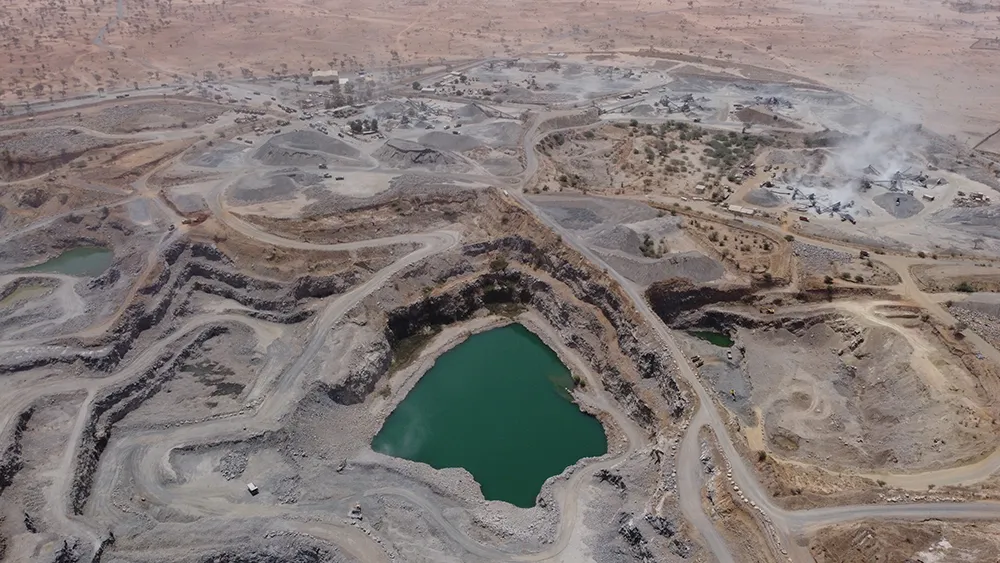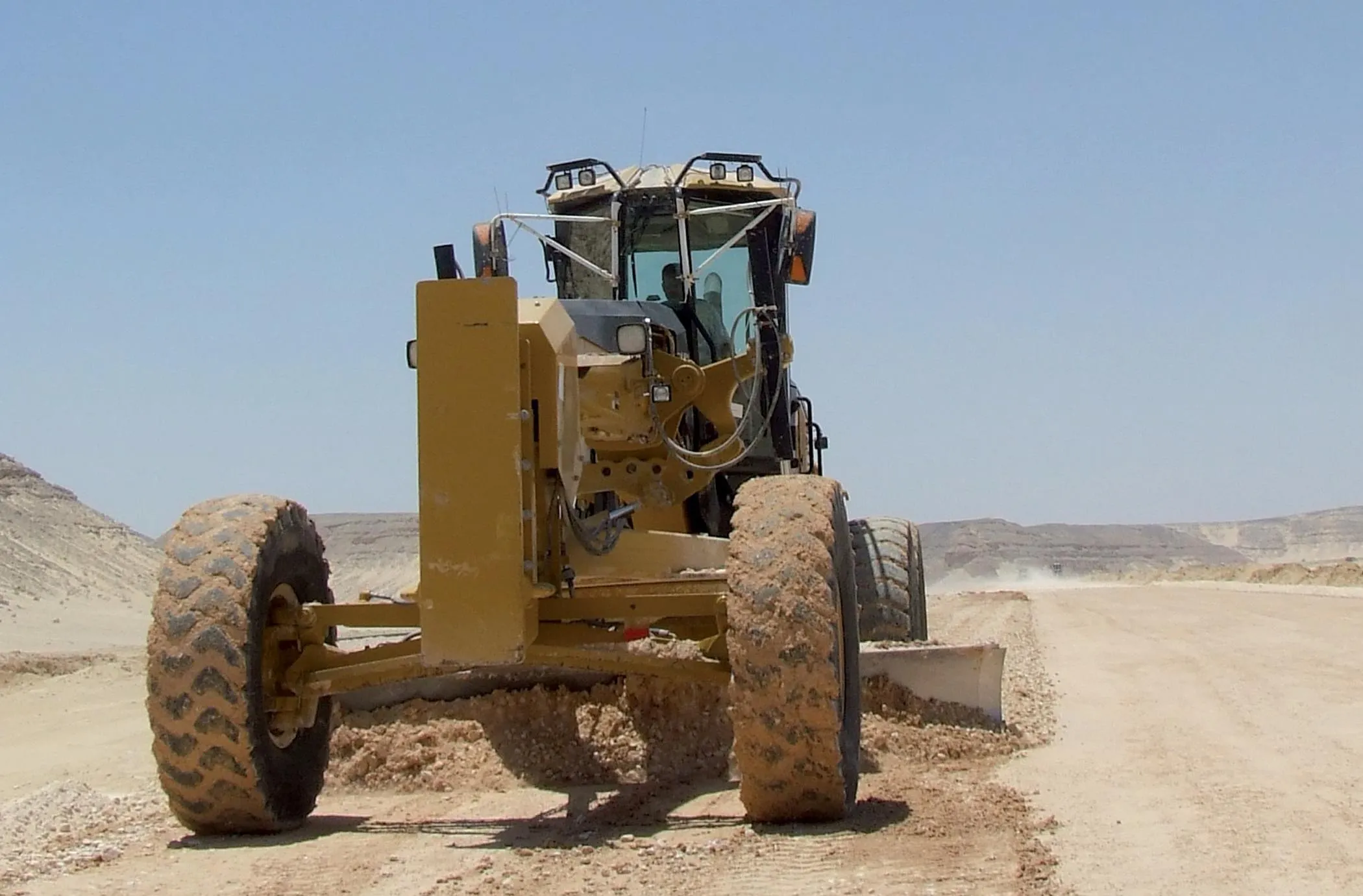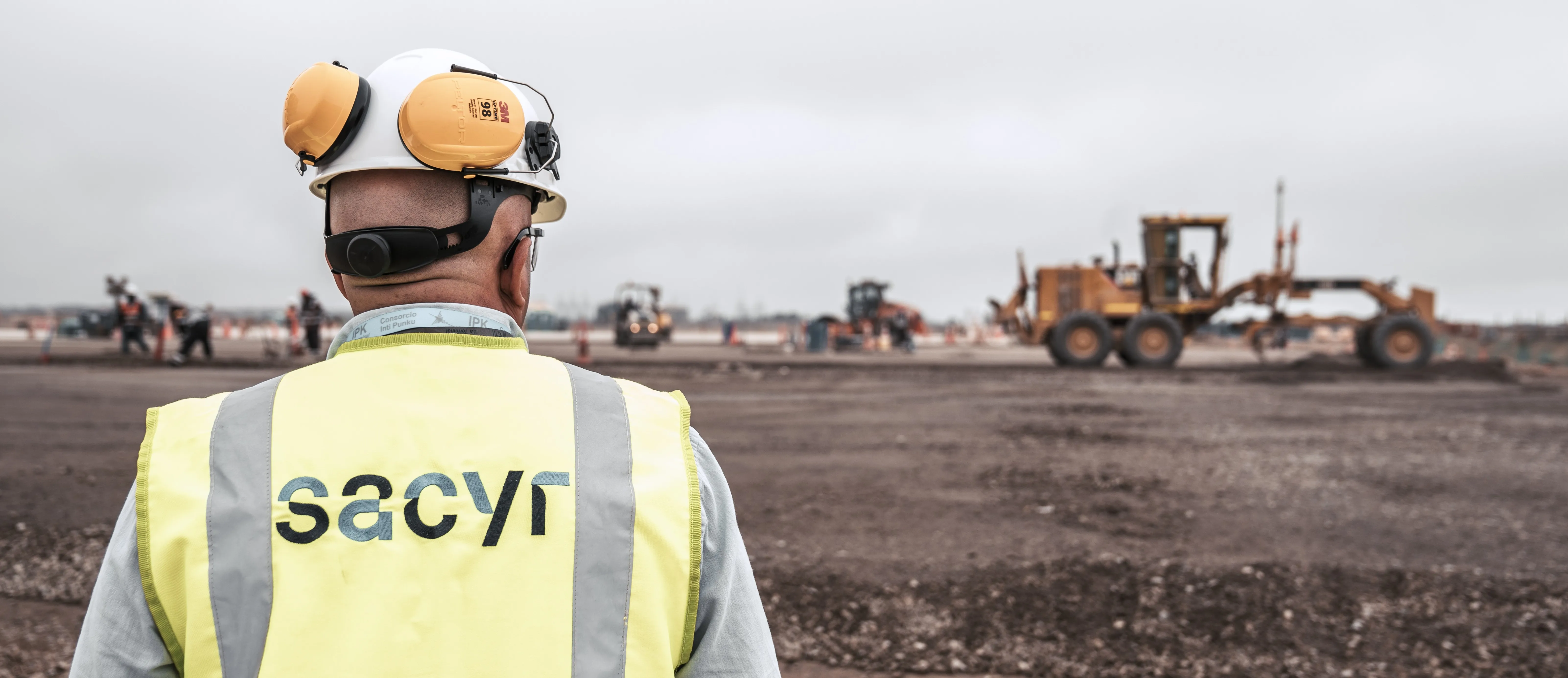
To address the challenges presented by this intensive operation, the company handling the quarry works, Vicat Group, required a bespoke weighing solution to ensure operations continued to run smoothly.
Across northern, western and central Africa, Topcon has already provided products to meet the needs of its clients in the field, through its partner SmartFleet – a subsidiary of BIA. Working collaboratively, the two organisations have been able to offer a service that meets the needs of differing territories.
Vicat Group required a weighing solution that was easy to learn and operate. Topcon worked with the company to design a simplified version of its Loadmaster Alpha 100 weighing system – providing a solution tailored to Vicat Group’s needs.
This system offers a simplified user interface, designed specifically so any loader can pick up and operate with ease. This new system is also currently being trialled on other sites across Senegal.
Jean-Yves Chouteau, director of the Gécamines Quarry (Vicat group) in Diack, Senegal said, “We required a weighing solution to equip our loaders that was simple to use. Topcon worked with us to design such a solution, which brought together one of its own products with a bespoke weighing system specific to our needs.”
The bespoke system was designed to enable workers to load trucks quickly and efficiently using a QR reader and beeper that indicated to the driver when the correct amount was reached. This ensured that the truck was loaded properly in the first instance, which was confirmed by the weighbridge. Without these types of systems, it is common for trucks to be under- or overloaded, which wastes time spent travelling back and forth between the quarry and weighbridge, as well as presenting a significant safety risk.
Following the introduction of Topcon’s bespoke solution, the average travel time for each truck decreased by approximately 30 minutes, a huge time saving for teams on the ground. Jean-Yves commented: “Since we load between 250 and 400 units/day, this solution has helped us save a significant amount of time and cut down on fuel consumption.
“Moreover, Article 14 of the West African Economic and Monetary Union treaty states that the overloading of trucks must be limited as much as possible to prolong the durability of roads, meaning our new weighing solutions are also benefitting the impact on local infrastructure. The training undertaken by the loader operators has contributed to an increased understanding of weight allowance to prevent this overloading from occurring, which will help inform our working practices going forward.”
The partnership between Topcon and SmartFleet was a crucial part of the success of this project. Not only does SmartFleet represent Topcon across the region in providing quality support and service to customers, but its network of technical experts act as an on-the-ground presence at customers’ work sites.
Fabrice Simon, sales support manager at Topcon for Africa and the Middle East, added: “The Gécamines quarry in Diack is one of our most important sites in terms of onboard weighing in Africa and our partnership with SmartFleet was crucial to the success of this project due to its understanding of the needs of local markets.
“Having a presence on the ground also allowed us to offer 24/7 support, with the ability to receive and adapt to feedback in real time. This meant we could quickly intervene in case of any issues, offering additional peace of mind.”
To date, Topcon and SmartFleet have supported the Vicat Group through the provision of eight weighing systems – four of which are equipped with the bespoke QR code system. Additionally, five loaders equipped with Topcon technology, directly connected to the computerised weighing systems, have also been provided and work with the existing Vicat ERP system. Two Loadmaster Alpha 100 systems have also been installed at Vicat’s outside warehouses for control purposes.
As the project continues, the companies hope that an additional seven systems will be delivered by the end of the year, with further projects planned for the future.









